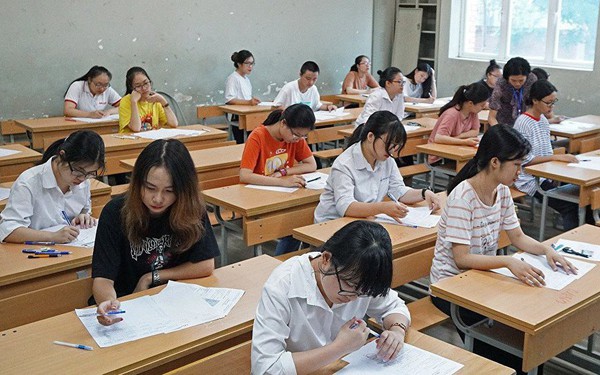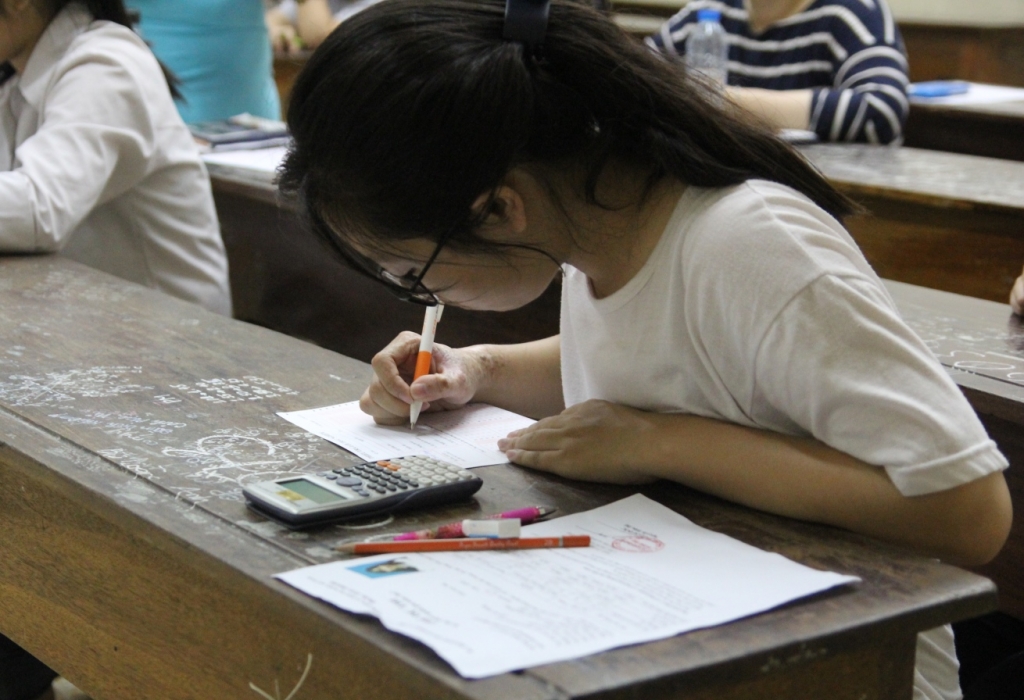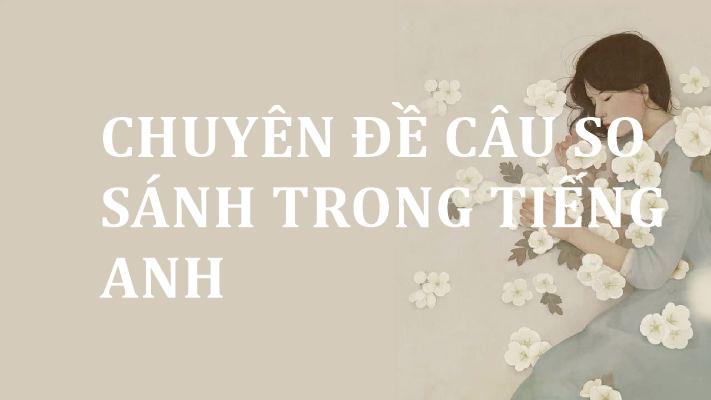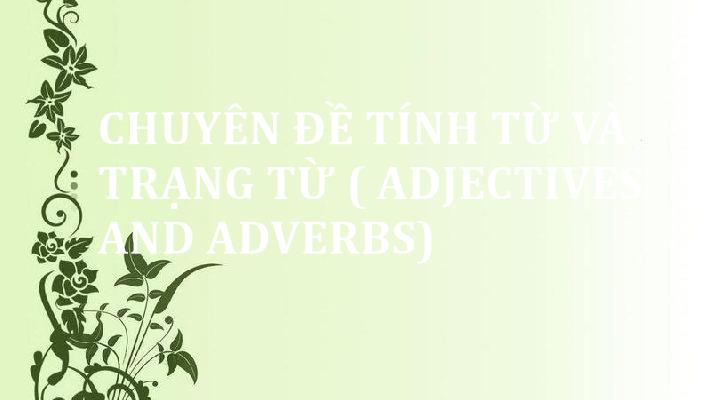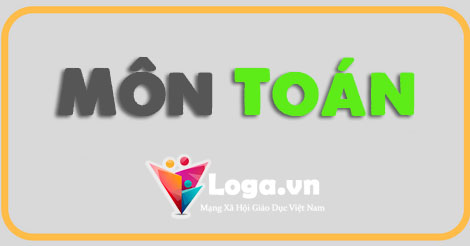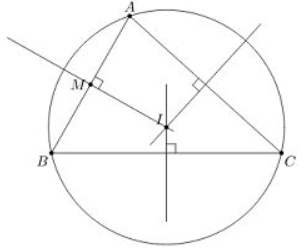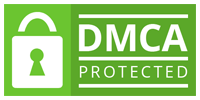Động từ khiếm khuyết (Modal Verbs)
1.Định nghĩa:
Động từ khiếm khuyết (Modal verbs) là động từ nhưng lại không chỉ hành động mà nó chỉ giúp bổ nghĩa cho động từ chính.
Động từ khiếm khuyết thông dụng trong tiếng Anh bao gồm các từ:
- can
- could
- may
- might
- will
- would
- must
- shall
- should
- ought to
Tại sao gọi là Động từ khiếm khuyết (Modal verbs)?
+ Ngôi thứ ba số ít không thêm S hoặc ES.
I can She can (she cans)
+ Không có hình thức nguyên thể ( to can) và hình thức phân từ (musted) giống như các động từ thường khác. Hiện tại/ Quá khứ Shall/Should Will/ Would Can/ Could May/ Might Must/ Must Ought to/ Ought to
+ Động từ theo sau chúng luôn ở dạng nguyên thể không TO (bare-infinitive).
I can swim. She can swim, too.
+ Không dùng trợ động từ DO/DOES trong câu hỏi, câu phủ định, câu hỏi đuôi…
Do you can speak English?
Can you speak English?
2.Một số MODAL VERB thường gặp và công thức (chức năng):
| MODAL VERB | CHỨC NĂNG | VÍ DỤ | LƯU Ý |
|
can, must, may, might (Mức độ chắc chắn giảm dần: must, can, may, might) |
Chỉ khả năng xảy ra |
|
must not = bắt buộc không được làm gì đó |
|
can,could (Can dùng khi nói về khả năng ở hiện tại, còn could dùng khi nói về khả năng trong quá khứ.) |
Khả năng, năng lực, kỹ năng |
|
|
|
must, ought to, should (Mức độ bắt buộc giảm dần: must, ought to, should) |
Nghĩa vụ, lời khuyên |
|
|
| may, might, can, could | Cho phép và xin phép |
|
|
| can, could, will, would, shall | Yêu cầu, lời mời lịch sự |
|
chỉ dùng cho ngôi I và we |
| will | Ý muốn, lời hứa | I will stay here with you. Tôi sẽ ở đây với bạn. |
|
|
will, would (hiện tại (will) hoặc quá khứ (would).) |
Thói quen |
|
MỘT SỐ ĐẶC ĐIÊM QUAN TRỌNG CẦN NHỚ CỦA ĐẠI TỪ KHIẾM KHUYẾT:
-
Luôn phải có một động từ nguyên mẫu theo sau
-
Không bao giờ thay đổi hình thức theo chủ ngữ
-
Khi phủ định thì không cần trợ động từ mà chỉ cần thêm "not" trực tiếp vào phía sau
-
Khi đặt câu hỏi thì không cần trợ động từ mà chỉ cần đảo động từ khiếm khuyết ra trước chủ ngữ
-
Không có các dạng V-ing, V-ed, To Verb
EXERCISE:
1) Young people ______ obey their parents.
a. must b. may c. will d. ought to
2) Laura, you and the kids just have dinner without waiting for me. I ______ work very hard today.
a. can b. may c. should d. would
3) I ______ be delighted to show you round the factory.
a. ought to b. would c. might d. can
4) Leave early so that you ______ miss the bus.
a. didn’t b. won’t c. shouldn’t d. mustn’t
5) Jenny's engagement ring is enormous! It ______ have cost a fortune
a. must b. might c. will d. should
6) You ______ to write them today.
a. should b. must c. had d. ought
7) I hope I ______ find it.
a. will b. shall c. could d. must
8) Unless he runs he______ catch the train.
a. will b. mustn’t c. wouldn’t d. won’t
9) ______ you be in Rome tonight.
a. will b. may c. might d. maybe
10) We ______ have time to help you tomorrow.
a. may b. must c. will d. could.
11) "______ you hand me that pair of scissors, please?"
a. May b. Will c. Shall d. Should
12) Jeanette did very badly on the exam. She _____ harder.
a. must have studied c. could have studied
b. should have studied d. must studied
13) He was very lucky when he fell off the ladder. He _____ himself.
a. could have hurt c. must have hurt
b. should have hurt d. will have hurt
14) Marcela didn't come to class yesterday. She _____ an accident.
a. should have had c. must have
b. might have d. may have had
15) John still hasn't come out. He ______ everything for the trip now.
a. must have been preparing c. must be preparing
b. will be preparing d. will have prepared
16) Thomas received a warning for speeding. He _____ so fast.
a. shouldn't have driven c. should have
b. would have driven d. might have driven
17) The photos are black. The X-ray at the airport _____ them.
a. should have damaged c. would have damaged
c. would damage d. must have damaged
18) Tom didn't do his homework, so the teacher became very angry. He _____ his homework.
a. must have done b. should have done
c. might have d. will have done
19) My car stopped on the high way. It _____ out of gas
a. may run c. must be
b. may have run d. should have run
20) Robert arrived without his book. He _____ it.
a. could have lost c. would have lost
b. should have lost d. will have lost
21) "Where do you think Rooney is today?". "I have no idea. He _____ late."
a. should have left c. would sleep
b. would have sleep d. may have sleep
22) Berbatov painted his bedroomblack. It looks dark and dreary. He _____ a different color.
a. had to choose c. must have chosen
b. should have chosen d. could have been choosing
23) The children _____ "thank you" to you when you gave them their gifts.
a. will have said c. should have said
b. must say d. should say
24) If we had known your new address, we _____ to see you.
a. came c. will come
b. would have come d. would come
25) These two boys look identical. They _____ twins.
a. must have been c. should be
b. must be d. should have been
II. Rewrite the sentence in the same meaning:
26) Perhaps Susan know the address. (may)
Susan ........................................................................................................
27) It's possible that Joanna didn't receive my message. (might)
Joanna ......................................................................................................
28) The report must be on my desk tomorrow. (has)
The report .................................................................................................
29) I managed to finish all my work. (able)
I ................................................................................................................
30) It was not necessary for Nancy to clean the flat. (didn't)
Nancy ......................................................................................................
31) The best thing for you to do is to sit down sit down. (better)
You ..........................................................................................................
Đáp án:
| 1 | A |
| 2 | C |
| 3 | B |
| 4 | B |
| 5 | B |
| 6 | A |
| 7 | C |
| 8 | C |
| 9 | A |
| 10 | C |
| 11 | A |
| 12 | B |
| 13 | A |
| 14 | D |
| 15 | C |
| 16 | A |
| 17 | D |
| 18 | B |
| 19 | B |
| 20 | A |
| 21 | D |
| 22 | B |
| 23 | C |
| 24 | B |
| 25 | A |
| 26 | Susan may know the address |
| 27 | Joanna mightn't have received my message |
| 28 | The report has to be on my desk tomorrow |
| 29 | I was able to finish all my work |
| 30 | Nancy didn't need to clean the flat |
| 31 | You had better sit down |

